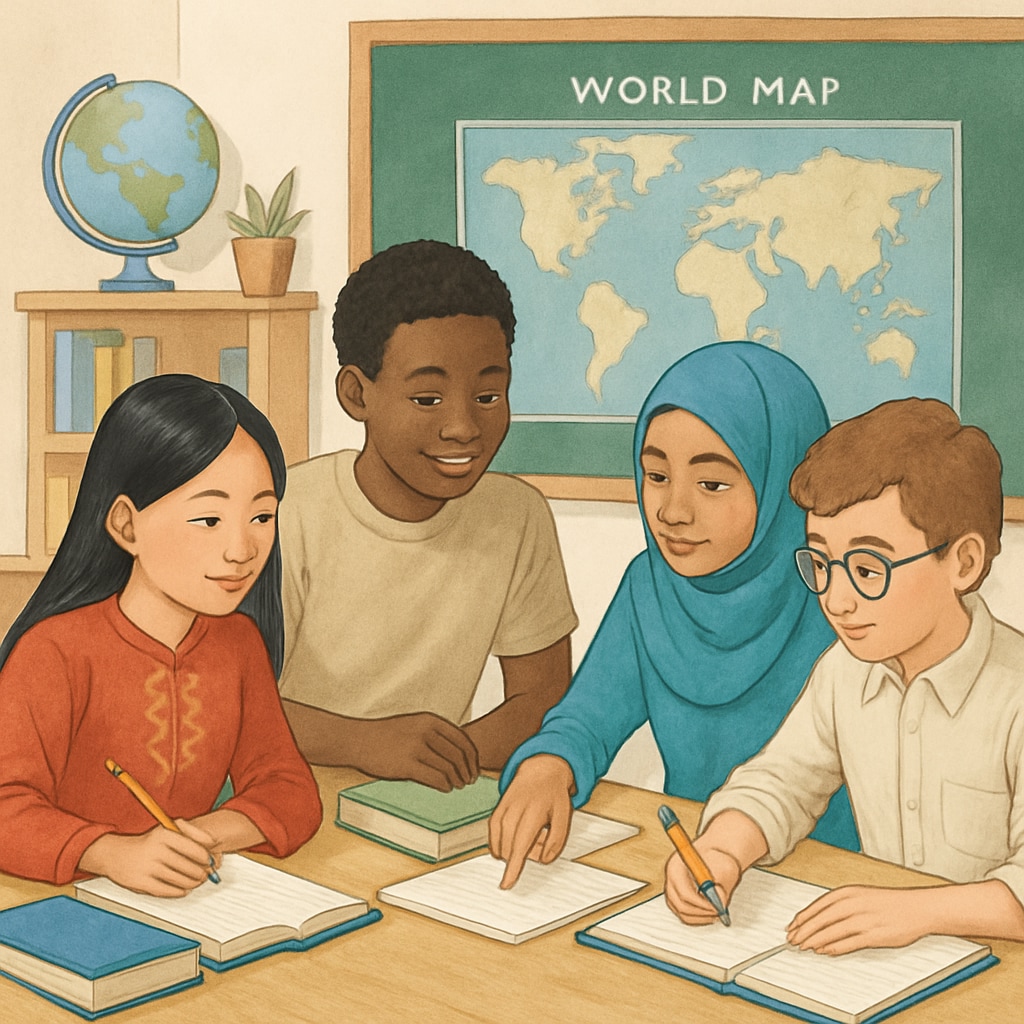The increasing interconnectedness of the world has made international adaptability a critical skill for students. For those considering opportunities such as studying abroad, including pursuing a master’s degree in Spain, the importance of cross-cultural competence is undeniable. K12 education plays a pivotal role in equipping students with the knowledge, skills, and mindset to thrive in a global environment. This article examines how schools can foster international adaptability through curriculum design, language learning, and cultural immersion.
Why International Adaptability Matters in K12 Education
Globalization has made it essential for individuals to understand and interact with diverse cultures. For students from countries like Azerbaijan who aspire to study in Spain, international adaptability ensures a smoother transition into new academic and social environments. According to globalization studies, individuals with strong cross-cultural skills are better equipped to navigate cultural differences, develop meaningful relationships, and succeed in international careers.
In addition, the challenges of moving abroad—such as language barriers, cultural norms, and academic differences—can be mitigated when students are exposed to these concepts early. By embedding international adaptability into the K12 curriculum, schools can prepare students for both academic success and personal growth in a foreign environment.

Building Cross-Cultural Competence in Schools
One of the most effective ways to nurture international adaptability is through a well-rounded K12 curriculum. Schools can implement the following strategies:
- Globalized Curriculum: Incorporate lessons on world history, geography, and international relations. This helps students understand global interdependence and cultural diversity.
- Language Education: Offering languages such as Spanish, French, or Mandarin is vital. Proficiency in multiple languages enhances communication skills and cultural understanding.
- Experiential Learning: Encourage students to participate in exchange programs, international projects, or virtual collaborations with peers from other countries.
For example, schools that integrate Spanish language courses and cultural studies can provide Azerbaijani students with a head start if they plan to pursue higher education in Spain. Practical experiences, such as pen-pal programs or virtual exchanges, can further solidify their understanding of the Spanish lifestyle and academic expectations.
Language and Cultural Immersion: Keys to Thriving Abroad
Language proficiency is often the gateway to successful integration into a new country. Azerbaijani students who are fluent in Spanish will find it easier to adapt academically and socially when pursuing their master’s degrees in Spain. A report by Britannica highlights the role of language in bridging cultural gaps and fostering empathy.
Moreover, cultural immersion—through travel, global literature, or interacting with diverse communities—enables students to develop open-mindedness and resilience. Schools can organize international trips or host cultural festivals to expose students to various traditions and customs, preparing them for the multicultural environments they may encounter later in life.

Preparing Students for a Successful Transition
Transitioning to a new country for higher education involves more than academic readiness; it requires emotional and social adaptability. Schools can provide resources such as workshops on intercultural communication, resilience training, and mentorship programs to help students build confidence in unfamiliar settings.
Additionally, parents play a significant role in cultivating international adaptability. Encouraging children to embrace new challenges, remain curious, and respect cultural differences lays the foundation for lifelong learning and adaptability. Together, schools and families can create an environment that nurtures globally competent individuals.
In conclusion, K12 education has the power to shape internationally adaptable students ready to thrive in a globalized world. By focusing on curriculum design, language learning, and cultural immersion, schools can prepare students for opportunities like studying abroad in Spain. For Azerbaijani students planning such a journey, these skills will be invaluable in ensuring a smooth and enriching experience abroad.
Readability guidance: The article uses concise paragraphs, lists to summarize key points, and transitions to maintain flow. It avoids excessive passive voice and lengthy sentences, ensuring clarity and accessibility for a broad audience.


